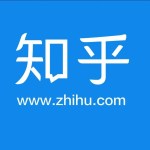How-to & Go-to Guides of All Things Around China.
China’s coffee market has been revolutionized by coconut-infused drinks like Luckin’s Coconut Latte and Cotti’s Coconut series, which have sold 120 million cups and 50 million cups respectively since 2021 . Behind these 爆款 products lies a complex supply chain dominated by Indonesian coconut islands and Chinese industrial giants, blending global sourcing with localized innovation. This article delves into the suppliers powering these brands, their sustainability practices, and the cultural significance of coconut in modern China, optimized for SEO with keywords like “Luckin coconut milk supplier,” “Cotti Coffee coconut origin,” and “China coconut industry.”
1. Luckin Coffee: Controlling the Coconut Supply Chain from Indonesia to China
The Birth of the “Exclusive Coconut Island”
In March 2025, Luckin Coffee signed a historic 100,000-ton coconut procurement deal with Indonesia’s Banggai Islands, establishing the “Luckin Exclusive Coconut Island” as its primary coconut milk source . This strategic move secures exclusive access to the islands’ premium coconuts, ensuring a stable supply for its iconic Coconut Latte, which accounts for 40% of Luckin’s annual revenue .
- Sustainability Initiatives:
- Luckin plans to invest in agricultural training centers and sustainable farming practices in Banggai, reducing reliance on chemical fertilizers and supporting local communities .
- By 2027, the company aims to source 100% of its coconuts from eco-certified farms, aligning with China’s “Double Carbon” goals .
The Rise of Fino: A Hidden Giant in China’s Coconut Industry
While Luckin’s new partnership dominates headlines, Fino (菲诺), China’s largest industrial coconut milk producer, remains a critical player. With a 29.7% market share , Fino supplies coconut milk to over 80% of China’s coffee shops, including Luckin’s competitors like Manner and Tim Hortons.
- Product Innovation:
- Fino’s thick coconut milk (厚椰乳), a key ingredient in Luckin’s early Coconut Latte formulations, became a household name after the drink’s 2021 launch .
- The company now offers sugar-free, lactose-free, and organic variants, catering to China’s health-conscious consumers .
2. Cotti Coffee: Diversifying Suppliers for Cost and Innovation
Dual-Supplier Strategy
Cotti Coffee, Luckin’s main competitor, takes a different approach by using two coconut milk suppliers:
- Plant Island (植物岛): A Guangdong-based brand providing premium coconut water and low-calorie coconut milk for Cotti’s “Light Coconut” series .
- Cotti-Exclusive Green Coconut Milk: A proprietary blend produced by Anhui Global Supply Chain Base, Cotti’s in-house manufacturing hub .
- Market Impact:
- By mixing suppliers, Cotti achieves 30% cost savings compared to Luckin, allowing it to price its Coconut Latte at **¥12 ($1.70)**, undercutting Luckin’s ¥18 ($2.50) .
Sustainability Challenges
Unlike Luckin’s island-wide initiatives, Cotti’s sustainability efforts are less transparent. However, the brand claims to use carbon-neutral packaging for its coconut milk cartons and partners with Indonesian farmers for direct sourcing .
3. The Coconut Industry’s Cultural and Economic Impact
From Niche to Mainstream: Coconut’s Journey in China
Coconut consumption in China has surged 400% since 2020, driven by:
- Gen Z’s love for tropical flavors: Coconut milk now appears in 60% of new coffee and tea products .
- Health trends: Coconut milk is perceived as a plant-based alternative to dairy, appealing to China’s growing vegan and lactose-intolerant population.
Hainan: China’s Coconut Heartland
While most coconut milk comes from Southeast Asia, Hainan Province remains a critical player:
- Local Production: Hainan produces 99% of China’s fresh coconuts, but its industrial processing capacity lags behind imports .
- Tourism Link: Visitors can tour Hainan Coconut Grand View Garden to learn about coconut farming and sample products like coconut oil soap and coconut vinegar .
5. Travel Itinerary: Tracing the Coconut Supply Chain
Hainan Coconut Tour
- Day 1: Visit Hainan Coconut Grand View Garden in Haikou to witness coconut milk production and taste fresh coconut water.
- Day 2: Tour Zhenge Food Processing Factory in Qiongzhong to see how coconuts are transformed into coconut milk powder and dried coconut flakes .
- Day 3: Relax on Yalong Bay while sipping a locally made coconut latte.
Indonesia-Banggai Islands Business Trip
- Day 1: Fly to Kendari, Sulawesi, and visit Luckin’s Exclusive Coconut Island to meet farmers and tour processing facilities.
- Day 2: Attend the Banggai Coconut Festival (July) to experience local harvest traditions and taste coconut-based dishes.
- Day 3: Explore Togean Islands’ marine biodiversity, a UNESCO Biosphere Reserve near Banggai.
Conclusion: The Coconut Milk War That’s Brewing Global Change
The rivalry between Luckin and Cotti has turned coconut milk into a billion-dollar industry, reshaping global trade and sustainability practices. While Luckin’s vertical integration and Fino’s dominance set the standard, Cotti’s cost-effective approach challenges traditional supply chain models. For travelers and businesses alike, this coconut milk war offers a fascinating lens into China’s economic innovation and cultural evolution.
Ready to taste the future? Try Luckin’s Coconut Latte in Shanghai or Cotti’s Light Coconut series in Beijing, then explore Hainan’s coconut farms for a deeper dive! 🥥
数据来源:
- 中国咖啡产业报告 (China Coffee Industry Report 2025)
- 印尼邦盖群岛政府公告 (Banggai Islands Government Press Release 2025)
- 菲诺 2024 年市场白皮书 (Fino 2024 Market Whitepaper)








